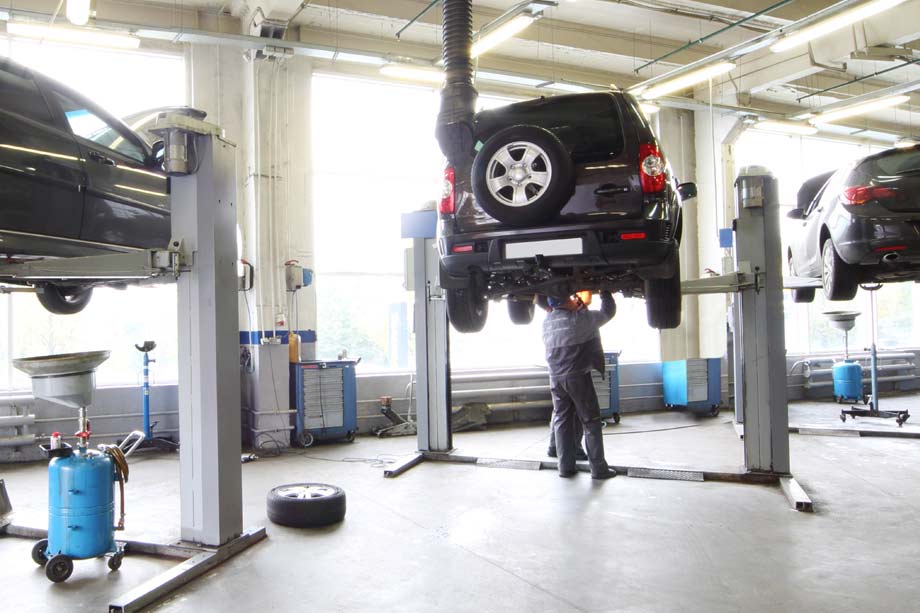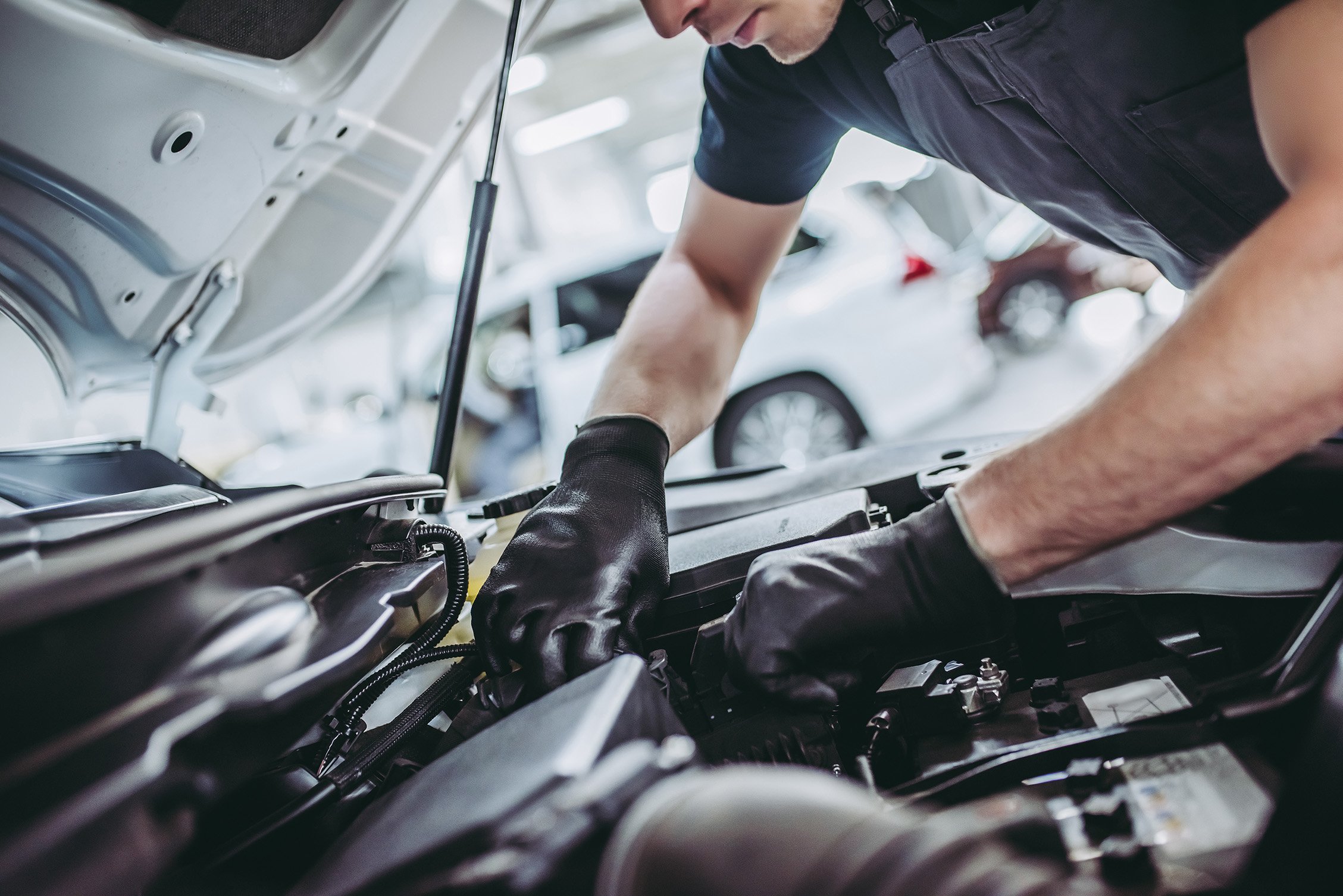All Categories
Featured
Your automobile's engine is a complex system that depends on lots of interconnected parts to function effectively. One of the most vital parts that makes sure every little thing runs smoothly is the timing belt. Though commonly neglected, the timing belt plays an important function in maintaining your engine integrated and operating at peak efficiency. Disregarding its upkeep or substitute can result in significant, pricey damages to your engine. In this short article, we'll check out the importance of timing belt replacement and why it's necessary to your engine's longevity.
What Is a Timing Belt and How Does It Work? The timing belt is a rubber or enhanced composite belt that links the crankshaft to the camshaft in your engine. These 2 components should run in sync for the engine's shutoffs to shut and open at the best times during the burning cycle. The timing belt regulates this synchronization, ensuring that the pistons and shutoffs don't clash.
![]()
As your engine runs, the timing belt continually relocates to keep these elements lined up. In time, the belt undergoes deterioration from rubbing, engine, and heat vibrations. If it damages or ends up being loose, the crankshaft and camshaft will certainly no much longer be synchronized, causing engine misfires, loss of power, or, in the most awful case, severe engine damages.
Why Timing Belt Replacement Is Essential. Stops Serious Engine Damage: If the timing belt breaks while the engine is running, the pistons can ram the valves, triggering bent shutoffs, harmed pistons, or also a cracked engine block. This sort of damages frequently calls for expensive and substantial fixings or an entire engine replacement. Changing the timing belt prior to it falls short is a affordable and basic method to stay clear of such devastating effects.
![]()
Makes Certain Smooth Engine Procedure: A well-kept timing belt helps maintain your engine running smoothly by maintaining the appropriate synchronization between the crankshaft and camshaft. When the timing belt is put on out or stretched, the timing of the engine's valves may be off, triggering engine misfires, harsh idling, or stalling. Replacing the timing belt at the advised interval ensures that the engine runs as it was developed to, optimizing efficiency and effectiveness.
Conserves You Cash: Although replacing the timing belt may look like a substantial ahead of time expenditure, it's far extra budget-friendly than the expense of repairing or changing a harmed engine. The labor associated with changing the timing belt is much less pricey than fixing engine elements that are harmed as a result of a broken belt. Normal timing belt replacement can save you countless bucks over time by stopping engine failing and costly repair work.
Prevents Unforeseen Malfunctions: If your timing belt breaks all of a sudden while you're driving, it can leave you stranded and need expensive towing. In the worst instances, it can trigger a total engine failure that provides your automobile inoperable. By changing the timing belt according to the supplier's standards, you lower the risk of unexpected failures and guarantee your vehicle stays trustworthy throughout everyday driving and lengthy journeys.
When Should You Replace Your Timing Belt? The timing belt does not last forever, and its substitute timeline can differ depending on the make and version of your vehicle. The majority of producers suggest replacing the timing belt every 60,000 to 100,000 miles. It's essential to consult your car's owner's guidebook for specific standards, as some engines might require earlier or later substitutes.
If you're unsure concerning the condition of your timing belt, indications that it could need changing consist of unusual engine noise (such as ticking or slapping sounds), difficulty beginning the engine, or inadequate engine performance. A specialist mechanic can examine the timing belt for deterioration and change it if required.
Conclusion. The timing belt is an important part of your automobile's engine, and its proper upkeep can save you from pricey repair work and engine damages. Frequently replacing the timing belt at the producer's suggested periods assists make sure smooth engine operation, prevents unanticipated breakdowns, and ultimately extends the life of your engine. Do not neglect this crucial upkeep job-- by staying on top of timing belt replacement, you're spending in the lasting health and wellness of your car.
What Is a Timing Belt and How Does It Work? The timing belt is a rubber or enhanced composite belt that links the crankshaft to the camshaft in your engine. These 2 components should run in sync for the engine's shutoffs to shut and open at the best times during the burning cycle. The timing belt regulates this synchronization, ensuring that the pistons and shutoffs don't clash.

As your engine runs, the timing belt continually relocates to keep these elements lined up. In time, the belt undergoes deterioration from rubbing, engine, and heat vibrations. If it damages or ends up being loose, the crankshaft and camshaft will certainly no much longer be synchronized, causing engine misfires, loss of power, or, in the most awful case, severe engine damages.
Why Timing Belt Replacement Is Essential. Stops Serious Engine Damage: If the timing belt breaks while the engine is running, the pistons can ram the valves, triggering bent shutoffs, harmed pistons, or also a cracked engine block. This sort of damages frequently calls for expensive and substantial fixings or an entire engine replacement. Changing the timing belt prior to it falls short is a affordable and basic method to stay clear of such devastating effects.

Makes Certain Smooth Engine Procedure: A well-kept timing belt helps maintain your engine running smoothly by maintaining the appropriate synchronization between the crankshaft and camshaft. When the timing belt is put on out or stretched, the timing of the engine's valves may be off, triggering engine misfires, harsh idling, or stalling. Replacing the timing belt at the advised interval ensures that the engine runs as it was developed to, optimizing efficiency and effectiveness.
Conserves You Cash: Although replacing the timing belt may look like a substantial ahead of time expenditure, it's far extra budget-friendly than the expense of repairing or changing a harmed engine. The labor associated with changing the timing belt is much less pricey than fixing engine elements that are harmed as a result of a broken belt. Normal timing belt replacement can save you countless bucks over time by stopping engine failing and costly repair work.
Prevents Unforeseen Malfunctions: If your timing belt breaks all of a sudden while you're driving, it can leave you stranded and need expensive towing. In the worst instances, it can trigger a total engine failure that provides your automobile inoperable. By changing the timing belt according to the supplier's standards, you lower the risk of unexpected failures and guarantee your vehicle stays trustworthy throughout everyday driving and lengthy journeys.
When Should You Replace Your Timing Belt? The timing belt does not last forever, and its substitute timeline can differ depending on the make and version of your vehicle. The majority of producers suggest replacing the timing belt every 60,000 to 100,000 miles. It's essential to consult your car's owner's guidebook for specific standards, as some engines might require earlier or later substitutes.
If you're unsure concerning the condition of your timing belt, indications that it could need changing consist of unusual engine noise (such as ticking or slapping sounds), difficulty beginning the engine, or inadequate engine performance. A specialist mechanic can examine the timing belt for deterioration and change it if required.
Conclusion. The timing belt is an important part of your automobile's engine, and its proper upkeep can save you from pricey repair work and engine damages. Frequently replacing the timing belt at the producer's suggested periods assists make sure smooth engine operation, prevents unanticipated breakdowns, and ultimately extends the life of your engine. Do not neglect this crucial upkeep job-- by staying on top of timing belt replacement, you're spending in the lasting health and wellness of your car.
Latest Posts
Signs When Your Car Needs Expert Auto Repair at Montclare Auto Repair
Published en
1 min read
Find Auto Services & More: Complete Auto Care Solutions from Montclare Auto Repair
Published en
1 min read
Recognizing When Your Car Needs Expert Car Repair at Montclare Auto Repair
Published en
1 min read
More
Latest Posts
Signs When Your Car Needs Expert Auto Repair at Montclare Auto Repair
Published May 26, 25
1 min read
Find Auto Services & More: Complete Auto Care Solutions from Montclare Auto Repair
Published May 24, 25
1 min read
Recognizing When Your Car Needs Expert Car Repair at Montclare Auto Repair
Published May 23, 25
1 min read